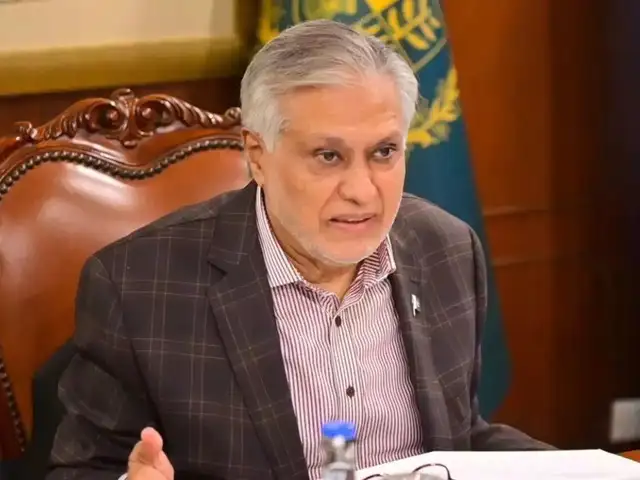ISLAMABAD: Deputy Prime Minister and Foreign Minister Senator Mohammad Ishaq Dar on Monday called for renewed global commitment to multilateralism and urgent reforms in international financial and governance systems as he inaugurated the Sixth Margalla Dialogue 2025, hosted by the Islamabad Policy Research Institute (IPRI).
Speaking at the opening session themed “The Future of Global Order: Cooperation or Confrontation,” Dar said the discussion was timely amid the erosion of multilateral values, bloc politics, trade wars, and growing inequalities. The conference gathered diplomats, scholars, and policymakers to deliberate on challenges to global peace and prosperity.
“In my recent addresses at multilateral forums, including the United Nations Security Council, I have repeatedly warned that humanity is facing unprecedented challenges that threaten to disrupt global peace, prosperity, and security,” Dar said.
He warned that multilateral institutions were weakening, noting that “the UNSC remains deadlocked due to political divisions, while in many cases, there is no meaningful mechanism to act against those who defy its resolutions.” Citing the examples of Palestine and Jammu and Kashmir, Dar said the Security Council’s inability to act had raised questions about its effectiveness.
He also pointed to worsening global debt distress affecting more than 100 countries, undermining progress toward the Sustainable Development Goals (SDGs). “Developing countries like Pakistan are bearing the brunt of climate change despite contributing negligibly to global emissions,” he added.
Reaffirming Pakistan’s belief in multilateralism, Dar said the United Nations remained “the world’s most representative platform for addressing shared challenges.” He highlighted Pakistan’s presidency of the UN Security Council earlier this year, during which Resolution 2788 was unanimously adopted, and mentioned efforts to strengthen institutional cooperation between the UN and the Organization of Islamic Cooperation (OIC).
The deputy prime minister said Pakistan also supported initiatives such as China’s Global Governance Initiative, which seeks to make the global system more responsive to developing nations. He urged comprehensive reforms to the global financial architecture to promote equity, calling for measures such as concessional financing, rechanneling unused Special Drawing Rights (SDRs), and expanding multilateral development banks’ lending capacity.
Dar also stressed equitable access to advanced technologies and reforms in global trade systems to promote sustainable development. He urged developed countries to honor their climate finance pledges ahead of COP30 in Brazil, emphasizing the need for balanced attention to adaptation, mitigation, and loss and damage.
Highlighting Pakistan’s geographic and economic potential, Dar said the country’s location at the crossroads of South Asia, Central Asia, and the Middle East made it a vital link for regional connectivity and trade. “We are determined to enhance regional connectivity and strengthen partnerships for socioeconomic progress,” he said.
He reaffirmed Pakistan’s commitment to a geo-economic vision based on cooperation and shared prosperity, concluding that “the deliberations at the Margalla Dialogue will help chart new pathways for cooperation toward a more stable, equitable, and prosperous future for all.”




